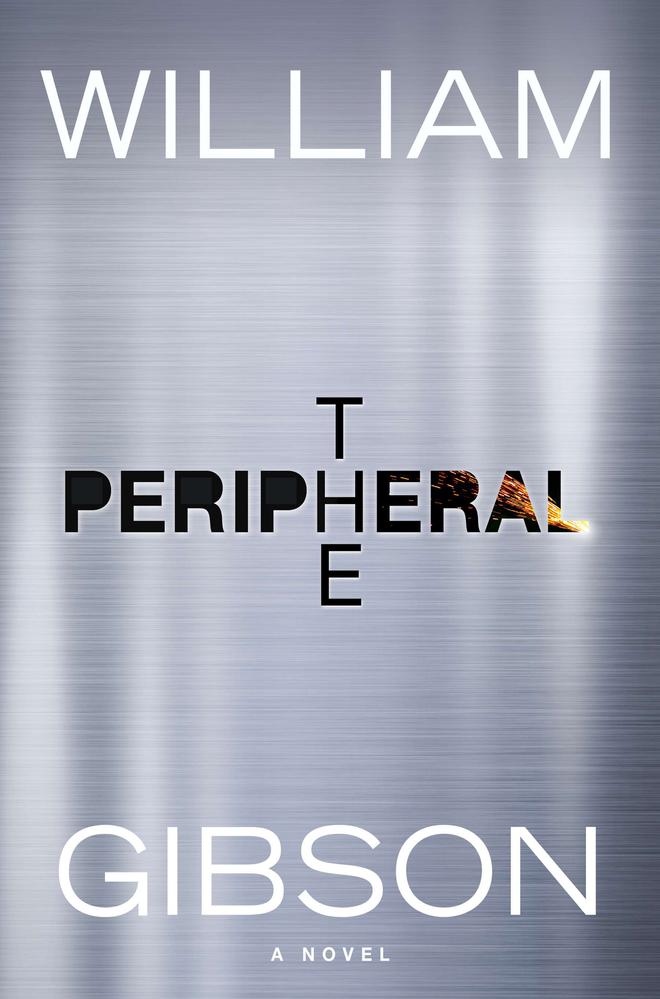
Jamie Marriage
Jamie Marriage is an internationally published Australian cyberpunk author with a taste for the dangerous and obscene aspects of life. His work ranges from the sarcastic to the satirical. Links to his work can be found at www.JamieMarriage.com
 When it comes to eclectic storytelling William Gibson is, if not king, then an accomplished baron. His earlier works have brought forth the birth of Cyberpunk, awareness of the realities of technological advancement and the dangers of globalised surveillance, and more narrative creativity than is usually found in a geek’s library. And in his newest work, The Peripheral, it’s easy to say that Gibson’s eccentric prose has hit upon another winner.
When it comes to eclectic storytelling William Gibson is, if not king, then an accomplished baron. His earlier works have brought forth the birth of Cyberpunk, awareness of the realities of technological advancement and the dangers of globalised surveillance, and more narrative creativity than is usually found in a geek’s library. And in his newest work, The Peripheral, it’s easy to say that Gibson’s eccentric prose has hit upon another winner.
Complex from the start, and requiring more than a little lateral thinking to work out the story’s arc, The Peripheral is a deep and compelling near-future tale told in numerous tiny chapters–often at a hectic pace.
When young gamer girl, Flynne’s, military veteran brother hires her to take his place in an online game piloting drone aircraft, she can’t see beyond the quick cash and excitement of the unknown; before long she is drawn into what seems to be the death of one of the game’s characters in a world not quite like her own. The sudden and mysterious death of armed strangers to her small community is only bound to complicate matters.
In another place and time, media publicist Netherton is charged with the protection of, and advertising for, a client in his charge: a client who has been sent to a newly formed island in the middle of the sea to negotiate with the mutated inhabitants living there. However, both the client and Netherton have their own agenda, which doesn’t bode well for what, to the world, appears a diplomatic mission and publicity stunt.
Things become all the more confused when Netherton is placed in charge of contacting Flynne, whose family is in a land distant in both geography and in continuity.
Exploring two worlds simultaneously is problematic enough, far more so when those timelines are only two or three pages apart. On one side there is emerging technology, heavy economic disparity, guns, drugs, war veterans riddled with PTSD and uncertainty. On the other, is a bright, clean post-scarcity society of deeply engrained advanced technology and strangeness. But somehow Gibson manages to do it with only an initial burst of confusion–a momentary feeling that you’ve stepped into something far bigger than you are used to.
It’s difficult to break down The Peripheral without revealing too much content. Every paragraph is carefully measured and constructed to keep every chapter down to a few scant pages, conveying quickly, and with little wastage, a story deeply complicated and yet approachable if given the opportunity.
Due to the limited nature of each chapter, character development is light but drawn out over the course of the novel, with little pieces forming complete pictures of each character’s motivations, which at the beginning might seem shallow or misaligned. The same goes for the overall storyline. What initially may be seen as a fictional discourse on the future of society where drone technology and 3D printers are the nature of society’s economy(which would seem at home in one of Gibson’s previous series), rapidly becomes a twisted knot of intrigue and counter intrigue far more intricate than at first glance.
The Peripheral is a book of plot within plot, at a level of complexity inside incredible complexity. To start the novel is to be drawn into a rapid current across timelines. It’s difficult, but making it through to the end of this powerful story is well worth a bit of chaos during the journey.


































